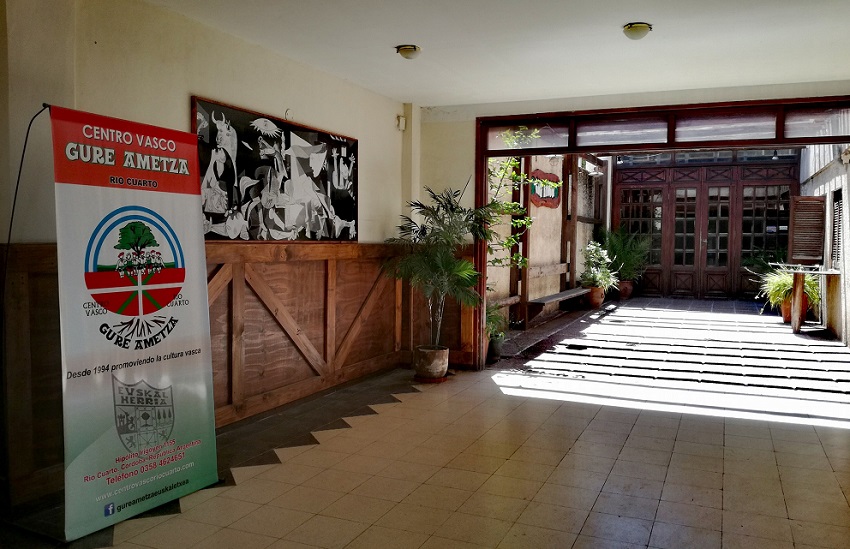Río Cuarto, Argentina. “La Cocina del Vasco,” (the Basque's Kitchen) is an undertaking by Sergio Eguiazu that emerged a year ago in the midst of the pandemic. A fan of the kitchen and proud of his Basque roots, the former president of the Rio Cuarto Gure Ametza Basque Club began preparing Basque dishes to sell at home The fame of “Basque Gastronomy,” made “La Cocina del Vasco,” exceed his home space, that as reported by our bulletin, participated in the Feast of San Patricio in Rio Cuarto.
As Eguiazu told EuskalKultura.eus, “Every step of this project is contingent on what happens with the pandemic. For the moment, this Thursday, we will do a pilot experience in which some club members will participate and on May 8th and 9th, we will hold a pintxo sale open to the public,” he said
“La Cocina del Vasco,” moved to Gure Ametza will include the particiaption of Eguiazu and club members Cristina Oses, Mercedes Echavarri, Isolina Lostalo, Manuel Campoamor, Carlos Garay and Franco Arzaut. Mauro Pavan, who is from Getxo, Bizkaia but who is currently in Rio Cuarto, will add his pintxo making experienc
There will be no lack of “Don Vasko” combos, the local beer created by craft brewer Beto Mendizabal. On Saturday, May 8th the sale will begin at 8pm and on Sunday the 9th will be at noon.
Renewal of Statutes and the Board of Directors
Beginning this week the club will be led by Manuel Ignacio Campoamor and the board is comprised by the following:
-Lehendakari: Manuel Ignacio Campoamor Ascacibar
-Secretary: Isolina Estela Guadalupe Lostalo
-Treasurer: María de las Mercedes Echavarri
-Directors: Eduardo David Aguirre, Carlos Alberto Garay
-Alternate: José María Artolazabal
-Auditor: Sergio Ramón Eguiazu
Along with the information on the new board, the Basque club also announced that this year they have modified the club’s statutes in regards to two points. On the one hand, the number of board members was reduced from 17 to 7, and on the other, the criteria for being an “active member,” that is to say to be on the board, also changed. “It was a very old statute that required both parents to be born in Euskal Herria. Now the condition is to have a Basque surname instead,” Eguiazu explains.






 Send to a friend
Send to a friend Add comment
Add comment








